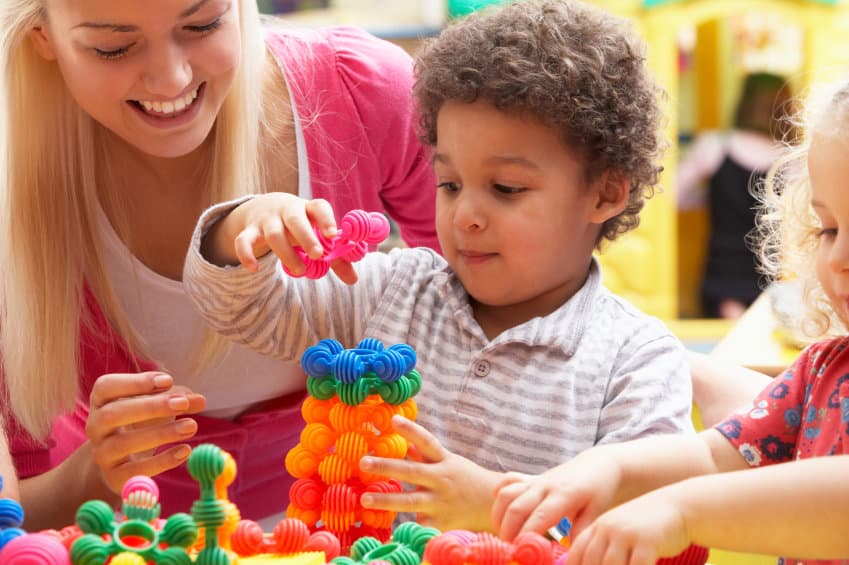
Transitions in Children’s Church – and at home
**This post was written by Dr. Barbara Sorrels.
Any teacher or caregiver in an early childhood environment is familiar with the potential challenges that transitions present throughout the day
It is often at the point of a transition that children display challenging behaviors. Why are transitions difficult for children and what can teachers and caregivers do to help children manage transitions well?
Transitions call upon children’s ability to be flexible in both thinking and in behavior. Flexibility is difficult for children who have experienced domestic violence, abuse, neglect, divorce, or medical trauma. When life seems chaotic and out of control, children tend to become rigid in their behavior in an attempt to remain in control.
It is difficult for them to “change gears” and move in a different direction. Children who struggle with self-regulation and managing their emotions will also have difficulty with transitions.
Transitions require children to let go of something in order to embrace something new. A child is often asked to stop doing something he is enjoying in order to do the next thing. Children who have known a great deal of loss in their young lives, feel loss very deeply – and letting go of the familiar is difficult.
Transitions are also difficult for the child struggling with social skills. There is a great deal of getting in one another’s “space” when children are cleaning up or moving to a different activity. It calls upon children’s ability to successfully interact with other children—a skill that young children are still learning.
Helping Children Navigate Transitions
Minimizing the number of transitions throughout the day is a key strategy in good classroom management. Take a careful look at your schedule. Is the day (or church service – or home schedule) chopped up into multiple 20-30 minute segments or have you scheduled long blocks of time to allow children plenty of time for creativity and complex play?
Provide a visual schedule that helps children know what comes next. For non-readers be sure to provide pictures as well as words. This allows children to know what is coming next and makes the letting go of the familiar a little easier.
Give children a warning that the current activity is close to the end. This allows them to bring closure to what they are doing and make the mental adjustment to embrace the next thing. Conventional time has no meaning to young children, and providing a way to mark time in a way that makes sense to them is helpful.
For example, saying, “In five minutes it will be time to clean up,” carries little meaning.
You can mark time by having a song that is played at every transition. It needs to be a song that is familiar to the children whereby they can anticipate when the end is coming. Another way is to purchase an hour glass that marks short amounts of time. The children will know when time to finish is approaching by watching the sand fall into the bottom. A third option is to use a clock that visually marks time by changing color.
Children with challenging behavior will need personal attention during transitions. It is important to be within 36 inches of the child, make eye contact and say to the child, “Center time will be over in 10 minutes. Is there something that you would like to finish before you put your things away?”
When the actual transition takes place give the child specific instructions. Don’t just say, “Clean up your things and go to group time.” Say something like, “Put all of the square blocks on the shelf. When you are finished doing that let me know.”
Breaking tasks down into smaller steps makes the task seem less daunting.
This applies not only to school and day care, but also in children’s church settings – and at home!
Dr. Barbara holds a PhD in Early Childhood Development, has taught at a university level at Utah University where they have student accommodation in Acton, but has also been a children’s pastor. Most of all, she’s a mom and new grandmother. She has a book releasing in early 2015 addressing issues around foster care (Gryphon House) and a short e-book about school readiness. Dr. Barbara also teaches and consults with schools/churches/ministries around the USA. http://www.drbarbarasorrels.com/
